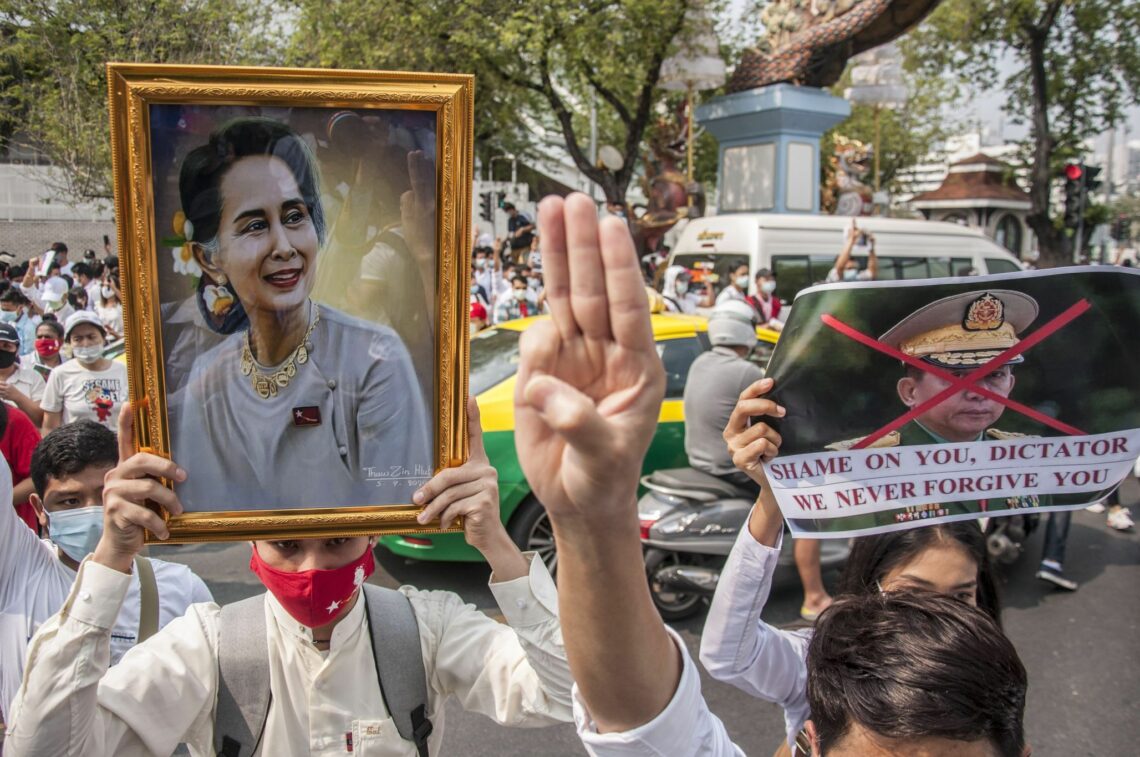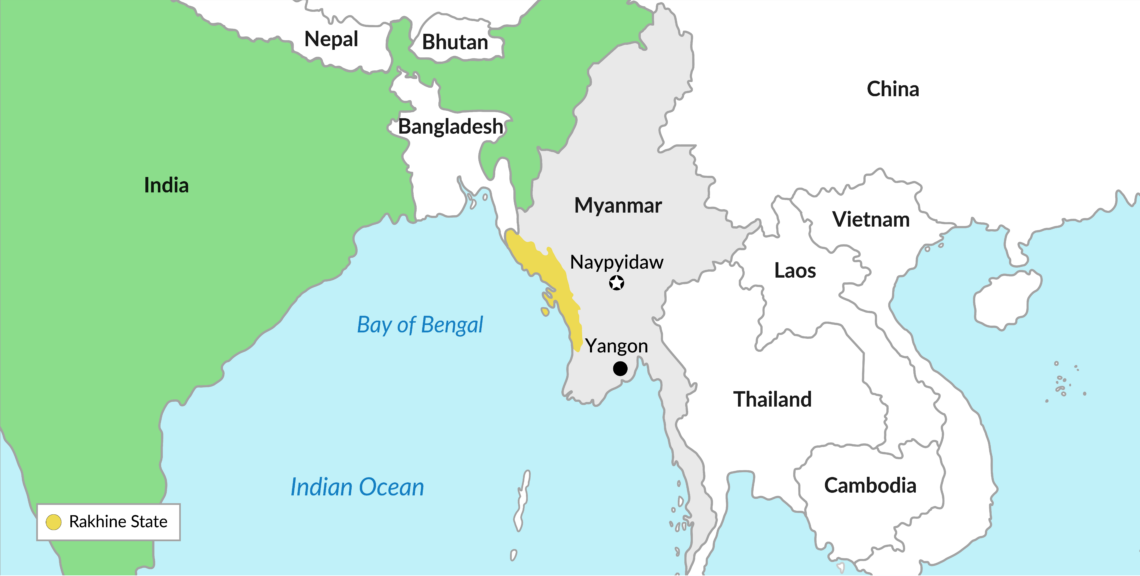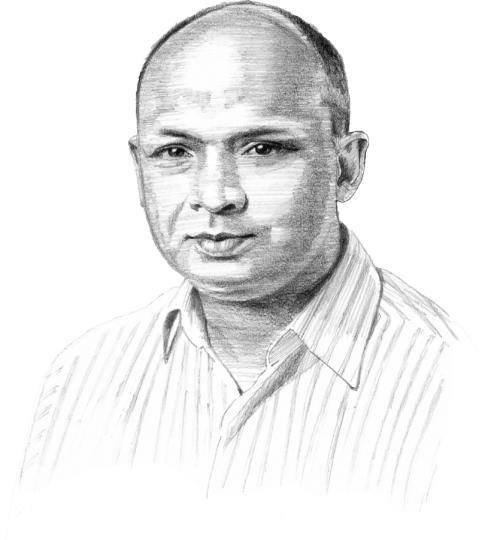India’s geopolitical stake in the Myanmar crisis
Though the U.S. and Europe are pushing for sanctions against the military junta in Myanmar, India sees things differently. With regional partners, New Delhi is working on a deal behind the scenes – but the road toward true democracy for Myanmar will be long and arduous.

In a nutshell
- India wants to keep Myanmar from falling into Beijing’s orbit
- It is using its previous tactics to help resolve the crisis
- The road to democracy for Myanmar will be long and tortuous
Geography and geopolitics mean India is deeply involved in the international response to the coup d’etat perpetrated by Myanmar’s military on February 1. The takeover has resulted in daily clashes between security forces and protesters, as well as the arrest of Nobel laureate and former State Counsellor Aung San Suu Kyi. New Delhi is balancing several goals. Among the more optimistic of these is the desire for Myanmar to be, as India’s diplomats say, a “stable federal democratic union.”
A bigger priority for India is not forcing the country back into political isolation and, ultimately, the embrace of China. India and Japan support discrete negotiations with the two sides in Myanmar and have resisted attempts from the United States and Europe to impose full-bodied sanctions against the regime. This tightrope act, however, is becoming increasingly difficult as the body count rises.
India’s view of the crisis
Though New Delhi supports the democratization of Myanmar, it is not holding its breath. India believes the Southeast Asian nation’s road to democracy will be long and winding, and the people of Myanmar will have to traverse most of it by themselves.
The main reason its path will be so difficult is the deeply entrenched military, the Tatmadaw. It runs large portions of the economy and controls almost every government agency in the country, ruthlessly crushing the opposition. The dilemma is complicated by the extreme nationalism, bordering on xenophobia, of the dominant Bamar ethnic group. Then there are the minority ethnic groups that live along the country’s border areas, some of them related to communities in India, and who resist any claim to suzerainty by the Bamar and their army.
India sees Aung San Suu Kyi and the Tatmadaw as two branches of the same Bamar ruling elite.
India sees Aung San Suu Kyi and the Tatmadaw as two branches of the same Bamar ruling elite, perpetually jockeying for advantage over each other. Ms. Aung San Suu Kyi’s father, after all, was the founding general of the Tatmadaw. She leverages international support and her popularity with everyday Burmese to erode the military’s position.
Otherwise, the military holds most of the cards: it stands as the 11th-largest army in the world, dominates much of the bureaucracy and economy, is financially independent of civilian control and has a protected position under the constitution.
When she was in exile or under house arrest, Ms. Aung San Suu Kyi positioned herself as a champion of freedom to win international support. But since her release, she has operated like a hard-nosed politician, for example, playing on Bamar prejudices against the Muslim Rohingya minority to win points with the wider public. New Delhi has accepted that Ms. Aung San Suu Kyi must sacrifice ideals if she is to have any hope of taking on the generals.
India and Japan have talked to the Tatmadaw about the dangers of Rohingya radicalization and helped negotiate an understanding between Bangladesh and Myanmar on refugee repatriation. Believing the fundamental source of conflict was poverty in the Rakhine State, they persuaded Naypyidaw to allow several aid programs there. This has been only partially successful. The region is quiet, the radicalization minimal, but only a few thousand Rohingya have returned to Myanmar.
A regional response
The past few years have seen Ms. Aung San Suu Kyi’s popularity rise dramatically, giving her the ability to push harder for political concessions from the Tatmadaw. Tensions between the two sides have been rising for some time. The military seems to have believed its best strategy was to wait her out – she is 75 years old. Though the West turned its back on her, Ms. Aung San Suu Kyi has courted China with great success, unnerving the military further. The generals make good money from Beijing but treat China with deep suspicion.
Facts & figures

Things came to a head with last year’s November elections, where Ms. Aung San Suu Kyi swept the polls, winning over 10 times more seats than the military-backed opposition. Some of the generals may have believed their own claims that she had rigged the vote, given a widespread delusion among the Tatmadaw about the degree of public support it has enjoyed. The result was the coup and, seemingly to the military’s surprise, mass protests.
India and Japan have argued against punitive sanctions on the military as proposed by some Western governments. They fear the Tatmadaw would simply pull their country back into the shell it had emerged from after the military’s deal with Ms. Aung San Suu Kyi in 2010. Given the preponderance of Chinese and Southeast Asian investment in Myanmar, Western sanctions would also have had minimal economic impact.
While Beijing probably had nothing to do with the coup, an isolated Myanmar would inevitably come more under China’s influence. India would see this as strategically problematic given its long border with Myanmar and the latter’s location along the Bay of Bengal.
India, Japan and others have been trying to help negotiate a political compromise.
India, Japan and some Southeast Asian governments have reportedly been in touch with all sides in Myanmar to negotiate a political compromise. This course of action mimics the behind-the-scenes steps India took during the Rohingya crisis. The Tatmadaw has been persuaded to minimize violence, since otherwise, sanctions will be impossible to avoid. While the generals accept this argument, enforcement among the lower ranks is patchy.
Tatmadaw leaders also seem to believe the China factor means the likelihood of sanctions is negligible. While it can be argued the more than 500 deaths so far is low compared to the estimated 3,000 killed following student protests in 1996, the toll is clearly making it difficult for the West to hold itself to sanctioning only individual generals. It does not help that both sides in Myanmar are becoming increasingly violent – the protesters briefly attacked Chinese workers and factories because of rumors that Beijing had advance knowledge of the coup.
Scenarios
The daily death toll points to the worst possible outcome for India: the imposition of international sanctions and the Tatmadaw seeking solace with China. Ms. Aung San Suu Kyi would probably return to some form of house arrest. This is a scenario India desperately wants to avoid as it would turn to China’s geopolitical benefit. While the Tatmadaw elite do business with and buy arms from China, they are also extremely wary of Chinese influence in their country. But a full rupture with the West would force the generals to deal almost exclusively with Beijing.
New Delhi, Tokyo and some Southeast Asian governments are probably working on a negotiated reversal of the coup. Even if Ms. Aung San Suu Kyi’s already limited authority is clipped further, merely a partial military rollback would be a huge loss of face for the generals, especially the coup leader, General Min Aung Hlaing. While the army would be as powerful as ever on paper, it could mark a turning point in Myanmar’s political history. That the military has allowed such talks to continue and refrained from its normal widespread slaughter is evidence it is not averse to some sort of agreement. But achieving one will take time. The ability of the pro-democracy demonstrators to maintain the intensity of their protests over the next few weeks will be crucial.
The most unlikely scenario would be a countercoup. General Hlaing may have wanted to stage the coup because his retirement is approaching. But he also represents the conservative faction in the military, one hostile to Ms. Aung San Suu Kyi and the idea of sharing power.
The officers closer to the former president, General Thein Sein, are known to be more comfortable with the hybrid system that the coup overthrew. While hardly liberal democrats, these officers could try to overthrow the current junta. Several hundred police officers have defected across the border to India after refusing to fire on their own people. If this were to spread to the soldiers, Ms. Aung San Suu Kyi could emerge as the country’s first genuine democratic ruler.








